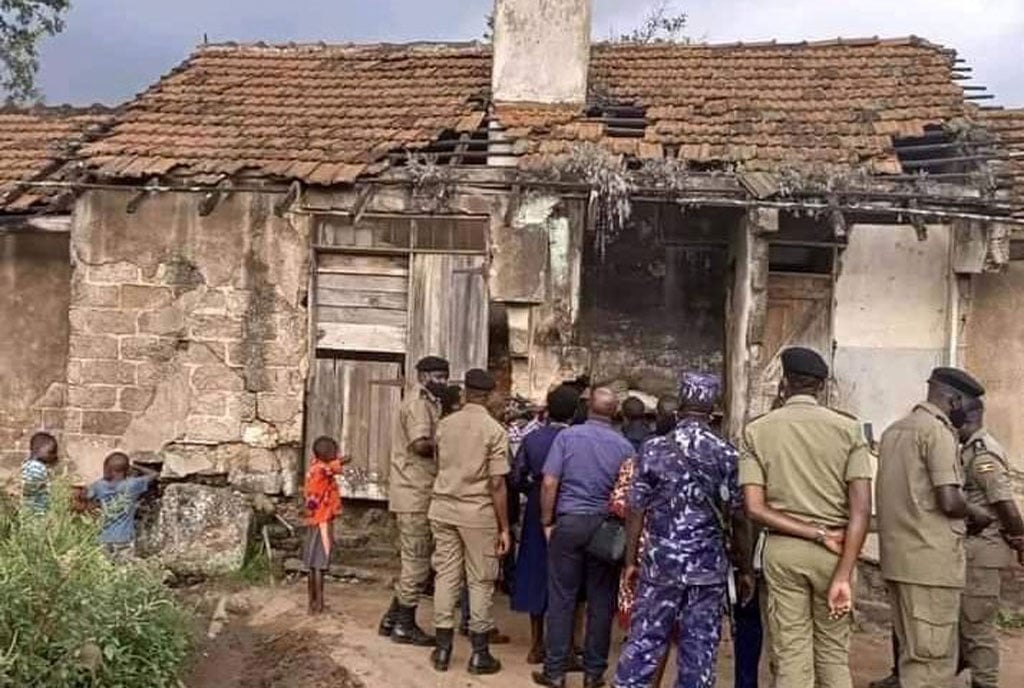US report faults Uganda over human trafficking

What you need to know:
The report says the government of Uganda investigated fewer trafficking cases and convicted fewer alleged perpetrators
A new report by the US government state department has accused the government of Uganda of not doing enough for its citizens who are trafficked abroad.
The report says the government does not fully meet the minimum standards for the elimination of trafficking, but is making significant efforts to do so.
The findings revealed that while the government increased awareness campaigns and implemented the National Action Plan for Prevention of Trafficking in Persons Uganda 2019-2024, it did not demonstrate overall increasing efforts compared to the previous reporting period.
“The government did not report referring victims to care for the fifth consecutive year. For the seventh consecutive year, the government did not allocate resources to NGOs that provide protective services to victims. The government did not screen vulnerable populations abroad for indicators of human trafficking,” the report says. Uganda government is yet to resond to the report.
Mr Fred Enanga, the police spokesperson, was not available to respond to the issues raised by press time. Officials from Gender, Labour and Social Development ministry were also not available to explain why government is not doing enough.
Titled: 2021 trafficking in persons report, the report says the government of Uganda investigated fewer trafficking cases and convicted fewer alleged perpetrators.
The report says government officials deliberately stifle investigations involving top government officials.
They cited the 2019 investigations by State House on involvement of human trafficking by government officials and the 2018 investigations of security personnel at Malaba border and Entebbe Airport, as well as officials of the Civil Aviation Authority and ground handling companies at Entebbe Airport, for alleged involvement in trafficking crimes. According to the report, no reports have been published to date.
“Media and senior government officials reported high-level officials may have owned or been associated with some labor recruitment companies suspected of trafficking. An NGO in 2018 continued to report some complicit immigration officers at border crossings assisted traffickers, and several NGOs alleged some senior police officials in Kampala protected traffickers from arrest and prosecution,” the report says.
The report says while police announced creation of Anti-Trafficking in Persons Department within the Criminal Investigation and Crime Intelligence Department, the new anti-trafficking department had yet to receive final approval at the end of the current reporting period.
Trafficking profile
The report says over the past five years, human traffickers exploit domestic and foreign victims in Uganda, and traffickers exploit victims from Uganda abroad.
According to the report, Ugandan children as young as seven are exploited in forced labour in agriculture, fishing, forestry, cattle herding, mining, stone quarrying, brick making, carpentry, steel manufacturing, street vending, bars, restaurants, gold mining, and domestic service.
“Traffickers exploit children in commercial sex. Women, children, internally displaced persons, and migrants may have been victims of forced labour or sex trafficking, and Cuban medical personnel working in Uganda may have been forced to work by the Cuban government,” the report says.
The findings futher indicate that the pandemic and the government’s lockdown measures, including closure of international airports and land borders, a curfew, restrictions on travel, restricted movement between districts and closure of all schools, workplaces, and government offices, shifted trafficking trends.
“.....the closure of international airports and land borders decreased international trafficking due to migrant workers unable to get to their destination, at the same time, domestic trafficking, including child sex trafficking increased,” the report says.
The report also say recruiters target girls and women aged 13 and 24 years for domestic sex trafficking, especially near sports tournaments and road construction projects and that in 2018, an international organisation estimated that there are between 7,000 and 12,000 children exploited in sex trafficking in Uganda.
“An international organisation and an NGO reported most internal trafficking victims are Ugandans, many of whom are from the northeastern and eastern region, specifically Karimojong children who traffickers exploit in forced begging and commercial sex in brothels,’’ the report states.
The US government urged Uganda to increase efforts to complete judicial proceedings, while respecting due process and the rights of the accused, increase coordination between police investigators and prosecutors of trafficking crimes and expand protective services for victims, specifically through partnerships with NGOs, including by allocating resources.
The report has also recommended increase in training for Ugandan embassy staff on assisting trafficking victims abroad, including victim identification, providing temporary shelter or identifying local NGO shelters for victims.
Prosecution
The report says in 2020, the government investigated fewer cases compared to 2019.
“During the reporting period, the government prosecuted 283 defendants for trafficking; of these, 161 cases were domestic and 41 transnational; 140 were sex trafficking cases, 54 were labour trafficking cases, and eight were unknown; and 192 defendants were male, 44 female, 46 unknown, and one was a labour recruitment company,” the report says.
“In 2020, courts convicted 11 traffickers under the anti-trafficking act in nine cases – six for sex trafficking and five for forced labour. This was a decrease compared to convicting 16 traffickers in 2019,” the report added.
The findings indicate that the closure of courts as a result of the Covid-19 pandemic delayed court hearings and hindered the ability of judicial officials and prosecutors to remain in touch with victims and witnesses





